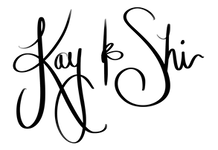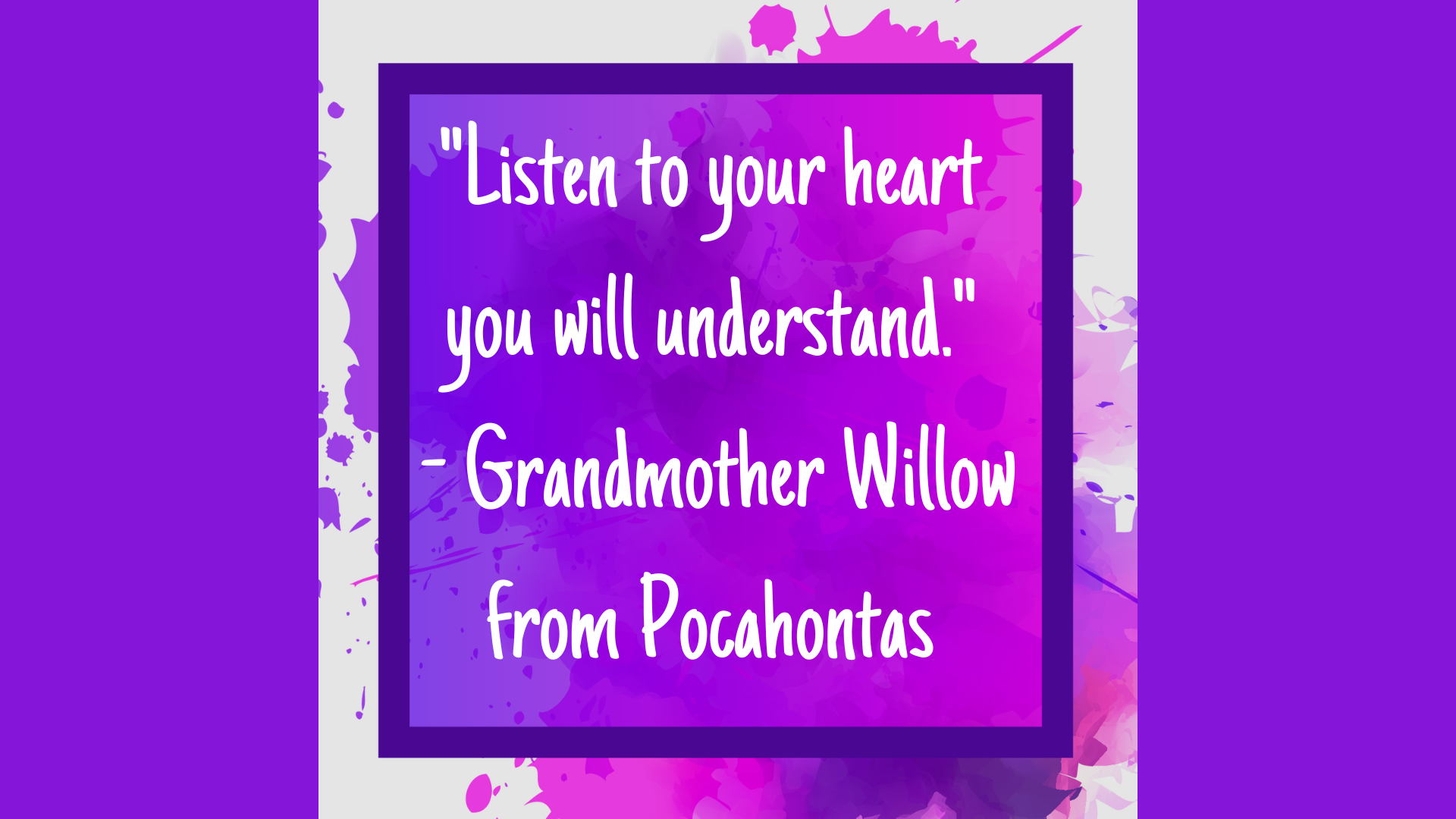Kay:
Hey, hey Questers welcome back. It’s another Fabulous Friday and this is August 20th, this is episode 425 for you and we have such a fun quote from a beautiful Disney movie from one of our favorite characters, Grandmother Willow from Pocahontas who tells us, “Listen to your heart you will understand.”

Shi:
Well, if you were tuned into yesterday’s quote, we talked about Einstein’s on the importance of understanding. So, if you left that podcast wondering, then where do I find understanding? Grandmother Willow today has your back.
Kay:
Well, if you’re looking for a little bit of understanding, there is a really reliable place to look and that’s in your own dang heart.
Shi:
That place inside of you that houses your emotional intuition. I heard Michael Singer recently use the metaphor to help underscore the heart’s role in our life. The metaphor being that your heart is really your internal jukebox. It is the soundtrack to your life. It sometimes plays a joyous beat when you’re just happy and elated. It sometimes plays a beautiful sorrowful song when you’re in deep grief or mourning. When you are in an anxious mode it’s beating to the rhythm that is suspenseful. So, it is that internal soundtrack for you and provides so much for us. But often we throw it to the side, or we spend all of our time in it. Both of those approaches aren’t holistic but in your heart is where you can find this deep understanding.
Kay:
You might be thinking to yourself, well, my heart can’t tell me anything. I listen to my heart, girls. I just don’t get it.
Shi:
My heart says stay home and do nothing.
Kay:
That’s what I really want to do. From a physical perspective, your heart organ and your gut organ are connected together with a set of nerves that actually mirror the nerves up in your brain that are thinking nerves. So yes, you have a thinking pattern situation that happens between your heart and your belly. That is very similar to the thinking patterns situation that happens up in your head. The difference is that your head has this really cool thing called executive function where it can verbalize what it’s feeling and thinking, but your heart and your gut don’t have that executive function to verbalize what it’s thinking and feeling. So, it’s really up to you to understand and interpret those feelings. So, if maybe you say I’ve never listened to my heart, and I don’t know what that is, and I just can’t get behind that. Think about this as that gut feeling. Your heart will tell you what to do, and maybe that doesn’t seem right, but your gut certainly knows, and your heart and your gut are very connected in a physical thinking sense.
Shi:
I like that you brought that forward here because we’re conditioned to speak in language, which means that our ability with our executive function to verbalize the thought patterns within our brain. For humans to advance that as kind of the scientific, knowable, objective way of communication has been great for us as we interact with each other, but it has left out the interaction with ourselves. So, we’re not as fluent in speaking that language of those thinking patterns that are not located inside of our brain but are giant. If you look up the research, totally you should. It’ll blow you away. The gut-brain and the heart-brain are real. There are tons of nerve endings and nervous system functions going on which means that if we can start to understand that language, we will get more understanding and guidance that can bring more dimension to our lives and to our understanding of what we’re doing and why we’re feeling that way. If we think about that musical metaphor, “listen to your heart”, let it be the soundtrack to your life. If you’re in a period of mourning, it’s okay to be grieving. You don’t have to try to fix it. If you’re in a period of suspense, but the music inside of you is telling you that the villain is around the corner, listen to that so that you can have the understanding of what it is trying to tell you and the more you practice that the better you’ll get at it.
Kay:
Yes. At this point in the movie, that’s kind of the place where Pocahontas is. She’s at the spot where she has this indecision, she doesn’t know what to do. She needs a way forward and Grandmother Willow tells her, “Listen to your heart you will understand.” It doesn’t say, listen to your heart and it will give you the exact words you need to hear, and then you’ll understand. She says, speak in the language of your heart. “Listen to your heart and you will understand.” At that time, Pocahontas is holding a compass. She breathes deeply. She takes a quiet moment and the compass points true to her desire, and she begins to follow it.
Shi:
Pocahontas, such a good movie. Alright, “Listen to your heart you will understand.” That’s the Grandmother Willow quote for you today. Your quest is, of course, a “Listen to your Heart” Quest today. Today, and over this weekend we want you to intentionally lean into the language of your heart over your head and see how it leads you differently and what opportunities it might bring. Are you ready? Heartbeat with us now.
Kay & Shi:
Let’s quest!
Shi:
Ba-boom, ba-boom.




